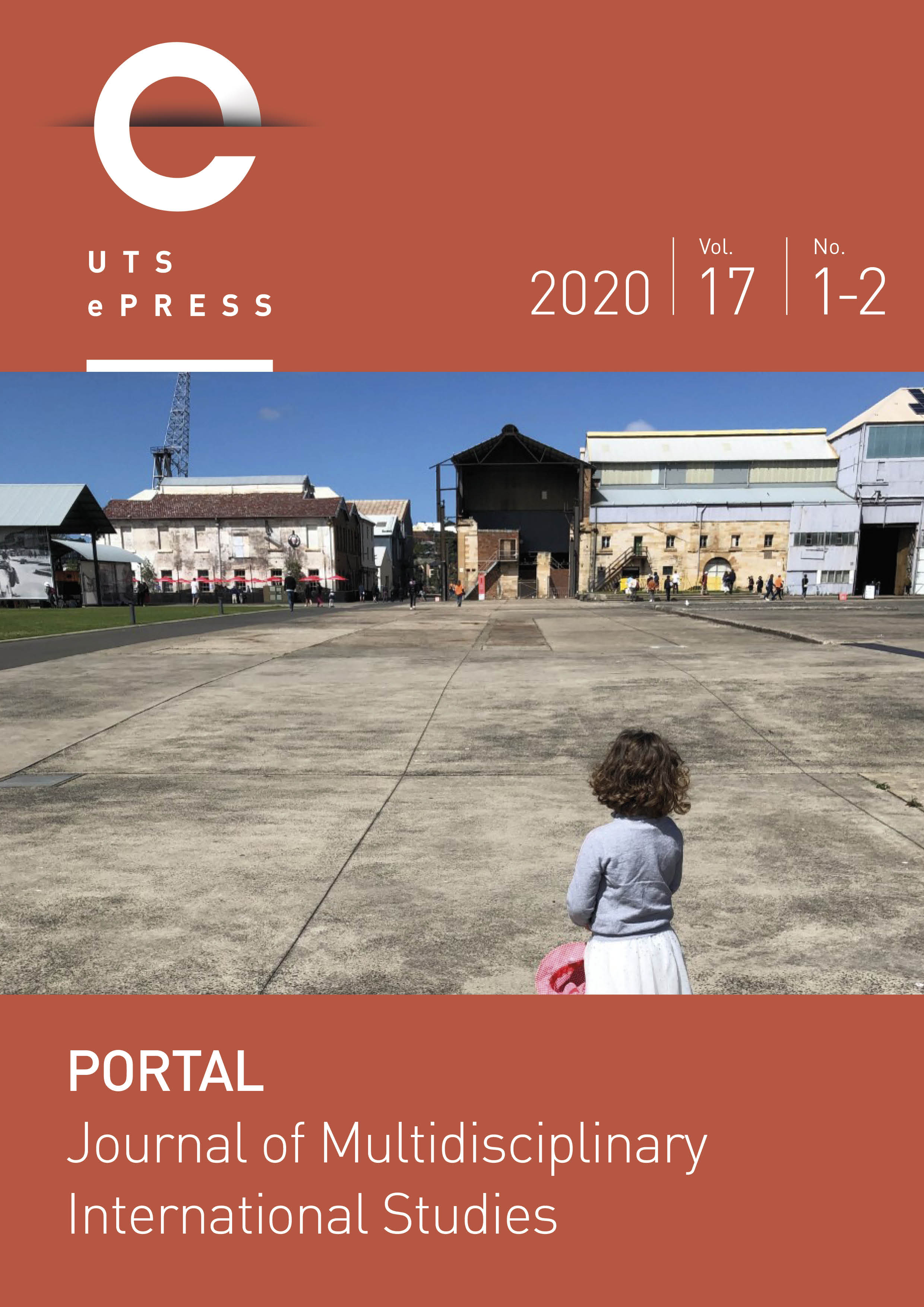Poetics in the Time of Pandemic. There is Always Going to be a Before and an After
Main Article Content
Abstract
This paper reflects on the impact of lockdown in Sydney on artists and creatives. We share our personal story of how we imagined our lives would be before COVID-19 and the changes we observed after entering in pandemic mode. Intertwining images taken with a mobile phone and text, we offer our observations on the evolving new language that appears around us in supermarkets, on walls and on the footpath: signs determining social interactions and affecting behaviour. We also touch on the idea of how writing can bring us home and make us feel closer to our languages and countries of origin. We underline theatre’s importance to tell stories from the time of the pandemic, when governments have been found wanting due to lack of care of the most vulnerable, in particular First Nations peoples. We reflect on the need for reinvention, accepting change, reassessing our human values and making present our links to the natural world. As the pandemic takes us from one stage to the next, we suggest that creativity is the one possible space that offers relief and hope and opens up possibilities to make sense of our new reality while contributing to a collective sense of humanity.
Article Details
Section
For submissions from 31st March 2014 onwards, authors who submit articles to this journal for publication agree to the following terms:
a) Retaining Copyright and Granting Rights:
Authors retain copyright and grant the journal the right of first publication. The work is simultaneously licensed under a Creative Commons Attribution License, allowing others to share and adapt the work. Acknowledgment of the work's authorship and initial publication in this journal is required.
b) Non-Exclusive Distribution:
Authors may enter into separate, additional contractual arrangements for the non-exclusive distribution of the journal's published version of the work (e.g., posting to an institutional repository or publishing in a book). Acknowledgment of its initial publication in this journal is required.
c) Online Posting and Citation Advantage:
Authors are encouraged to post their work online (e.g., in institutional repositories or on their website) prior to and during the submission process. This may lead to productive exchanges and earlier and greater citation of the published work (See The Open Access Citation Advantage Service). If authors include the work in an institutional repository or on their website, they must acknowledge the UTS ePRESS publication with relevant details.
d) Creative Commons Attribution (CC-BY) License Awareness:
Authors should note that the CC-BY License permits readers to share (copy and redistribute) and adapt (remix, transform, build upon) the work for any purpose, including commercial use. Proper credit, a link to the license, and indication of any changes made must be provided. The manner of doing so must not suggest endorsement by you or your publisher.
For Volume 10 No 2 (2013) and earlier, the following copyright applied:
Authors submitting a paper to UTSePress publications agree to assign a limited license to UTSePress if and when the manuscript is accepted for publication. This license allows UTSePress to publish the manuscript in a specific issue.
Articles published by UTSePress are protected by copyright, with rights retained by the authors, who assert their moral rights. Authors control translation and reproduction rights to their works published by UTSePress. All rights are reserved worldwide by UTSePress, and downloads of specific portions are permitted for personal use only, not commercial use or resale.
For reprint or usage permissions, please direct inquiries to UTSePress via the journal's main editor, Dr. Nicholas Manganas at [portal.scholarly.journal@gmail.com]. Reprint permission requires acknowledgment of both UTSePress and PORTAL in the format advised by the journal editor.
